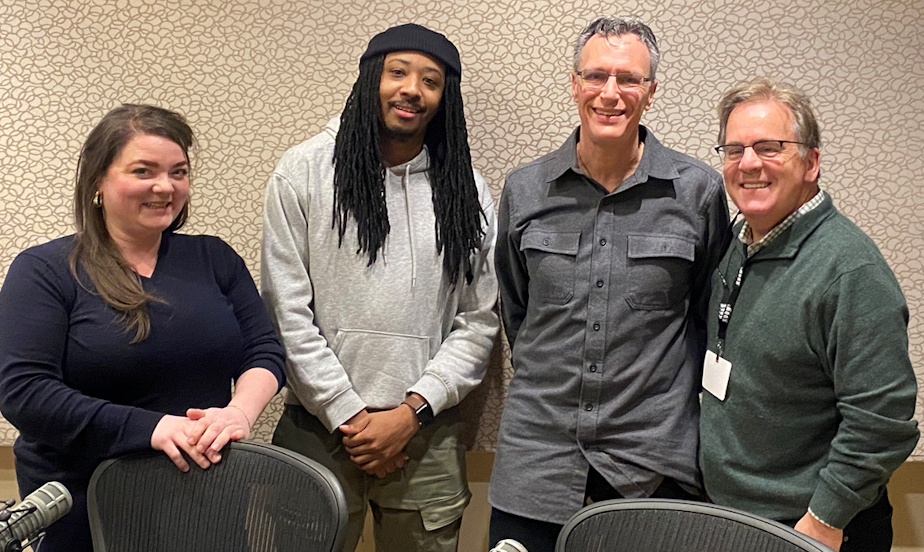Week in Review: affordable housing, lewd laws, and graffiti

Bill Radke discusses the week’s news with Alex Hudson, Saul Gamoran, and Mike Davis
A Seattle group is now collecting signatures to put a new tax on the ballot. It's a tax on businesses that pay any employee more than $1 million a year in total compensation. The business would pay a 5% tax on payroll expenses for each of those highly compensated employees including stock options, bonuses, and deferred compensation. This is a way of paying for something that Seattle voters approved last year. That was the so-called "Social Housing" initiative. It would pay for a social housing developer, that will build, acquire, manage, and maintain mixed-income affordable housing for tenants making between 0-120% of the area median income (AMI), with rent priced at 30% of their income. The group behind the tax says it could create up to 2,000 units of permanently affordable, publicly owned housing over a decade. Seattle's Chamber of Commerce opposes this payroll tax. What are the pros and cons?
An organization called Strippers Are Workers wants alcohol sales in strip clubs because it means more money for the clubs. Right now, some patrons go into their cars and drink and then come inside. If this changed, dancers could get some of that money if the club is selling alcohol and bartenders could keep an eye on who's getting too drunk. The Legislature is also considering other rules that some strippers want, like a limit on fees strippers must pay to get on stage, and safety protections including panic buttons and blacklists for customers who harass dancers.
Seattle can get back to enforcing its anti-graffiti law after a federal court ruling. That law had been found unconstitutional, but the Court of Appeals overturned that. That means no writing, painting, or drawing on public property without permission. What was supposedly wrong with that law?
The City of Bellevue announced it had found an organization to run a pilot program that lets people live in their vehicles on city-owned property. A youth and Latino-focused organization the serves east King County called 4 Tomorrow will develop and facilitate the program through 2024, with an option to extend to June 2025. The city will pay $672,350 for the program at Lincoln Center. First clients will be there by early spring. Last summer, the city counted 54 vehicles where people were living. The Seattle Times reports the lot will have 20 spaces; a day center with bathrooms, showers, and kitchen facilities; emergency responders; and staff who can connect people to services for employment, medical and mental health care, and other help finding housing. And no drugs allowed. What has the reaction been?





